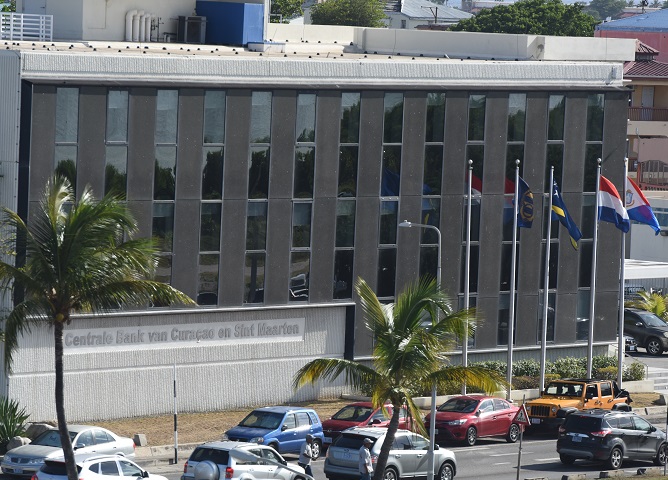Banks, insurance institutions, and pension funds show resilience in the face of uncertainty
WILLEMSTAD/PHILIPSBURG – Growing geopolitical conflict, global trade and financial market volatility, and cybercrime posed major risks to financial stability during 2024 and into 2025. At the same time, the financial sector of the monetary union remained on solid standing. The President of the Centrale Bank van Curaçao en Sint Maarten (CBCS), Richard Doornbosch, remains cautiously positive in response to heightened global uncertainty, as stated in the CBCS’s 2025 Financial Stability Report (FSR).
The 2025 FSR covers forty-seven local financial institutions (banks, insurance institutions, and pension funds) operating in the monetary union. Together, these institutions manage total assets of around Cg 28 billion—more than three times the monetary union’s GDP.
Financial institutions saw a strong year in terms of fixed-income assets. At the same time, the financial sector was able to benefit substantially from the tourism-boosted economic growth in Curaçao. Economic growth is expected to remain positive in 2025, while uncertainty in global markets and slower tourism activity may pose headwinds. Prospects of inflation triggered by US trade policies and a possible economic downturn in major economies can transmit to the financial sectors in Curaçao and Sint Maarten directly or indirectly, through several channels. The US tariffs and trade wars may impact inflation and growth in foreign markets that are key to our expanding tourism industry. As geopolitical risk grows, the CBCS accentuates the need to keep sufficient safeguards in place.
Overall, the banking sector recorded a positive year in 2024, with stable performance across key financial soundness indicators. Strong capital and liquidity positions provide a solid foundation for banks to absorb potential shocks. Asset quality improved as nonperforming loans declined, although overdue loans warrant close monitoring. While profitability increased, credit risk remains a concern which may necessitate additional provisions.
Institutional investors showed a stable performance overall. Life insurers and pension funds benefited from strong investment results in 2023, while non-life insurers remained resilient despite rising costs. Both sectors are in a strong position to face the upcoming challenges. Non-life
insurers remain vigilant of tightening global reinsurance conditions and inflation-related expenses. Life insurers and pension funds face risks stemming from volatility in global markets. Pension funds also remain vulnerable to challenges related to ageing population and rising longevity.
With the FSR, the CBCS aims to inform stakeholders and the public about the state of the financial system in the monetary union of Curaçao and Sint Maarten. The report quantifies exposures, presents stress scenarios, and identifies the main risks to financial stability and their transmission channels. As we navigate this period of heightened uncertainty, it is essential for financial institutions in Curaçao and Sint Maarten to remain proactive and forward-thinking. Together, we work to ensure long-term stability and resilience in an increasingly complex global landscape.
The complete text of the 2025 Financial Stability Report is available on the CBCS website at: https://www.centralbank.cw/publications/financial-stability-reports/2025.





























